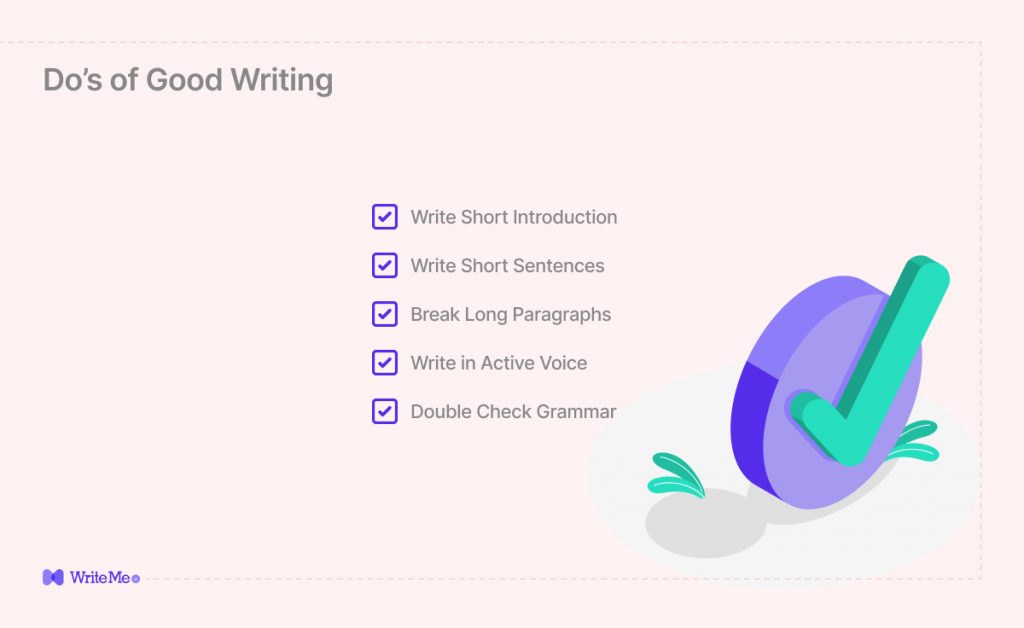Every day, most individuals write for jobs, school, personal purposes, or hobbies. However, most individuals are not writers. Even grammar specialists make common writing mistakes every now and then!
Some mistakes are more serious than others. No one expects an ordinary person to understand the intricacies of the English language. However, as a professional writer, your writing must be impeccable. In this blog post, we have 10 common writing mistakes that are some of the most fundamental errors you should avoid while writing.
10 Common Writing Mistakes To Look Out For
No matter how confident you are about your writing skills, you might end up making some common writing mistakes such as:
Using the Wrong Words
Wrong word mistakes can take several kinds. They may express a somewhat different meaning than you intended (compose instead of comprise), or they may indicate an entirely different meaning (prevaricate instead of procrastinate). They might even be as basic as a misplaced preposition or another form of an incorrect word in an idiom.
Address this issue with the help of a thesaurus and spell checker. However, be careful when using this solution. If you choose a term from a thesaurus without understanding its specific meaning, or if you let a spell checker fix your spelling automatically, you may commit a mistake. If you’re having trouble with prepositions and idioms, read up on the normal use.
Using Incorrect Punctuation
When you’re in the flow of writing, it’s easy to overlook the end punctuation. Sentences can be terminated with a period, a question mark, or an exclamation mark. The majority of sentences are declarative or statements. These should be followed by a period.
Questions should always be followed by question marks. Exclamatory phrases express heightened emotions like enthusiasm, surprise, or rage. They should be punctuated with exclamation points.
Spelling Errors
Even though technology now checks most of our spelling for us, a spelling error is one of the top 20 most prevalent blunders. Because spell checkers cannot recognize many misspellings, they are more likely to miss homonyms (for example, presence/presents), compound words spelled erroneously as distinct words, and proper nouns, notably names. Proofread carefully for typos after using the spell checker.
Mixing up Hyphens and Dashes
Hyphens, en dashes, and em dashes are all distinct punctuation marks. A hyphen (-) is a thin line that connects two or more words or portions of words (e.g. ex-boyfriend, merry-go-round, skin-tight.)
A timeline, numerical range, or serial order is represented by an en dash (-). For example, January-March, 2000-2005, or an alphabetical range such as Ca-Ch. It is both longer and shorter than a hyphen.
An em dash (—) can be used in a variety of ways. It’s the length of two hyphens, however, putting two hyphens next to each other is improper. Some applications will automatically change this to an em dash, while others will not. If you have a numerical pad, use the alt code to write it.

Quotation Error
When we cite other writers, we incorporate their perspectives into our own. Quotation marks are important because they illustrate where their words finish and ours begin.
Quotation marks are used in pairs; remember to open and close your quotes. Block quotes do not require quotation marks in most documentation styles (for example, MLA Style). To discover how to display block quotes, see your professor’s approved style handbook.
Unnecessary use of the comma
We frequently have the option of using a comma or not. However, if we use them in situations where they aren’t necessary, we risk obscuring rather than clarifying our idea.
Commas should not be used to separate limiting features that are essential to the meaning of the words they alter. When a coordinating conjunction (and, but, for, nor, or, so, still) does not unite elements of a compound phrase, do not put a comma before it. A comma should not be used before or after the first or last item in a series.
Subject–Verb Agreement
Subject-verb agreement is one of the most prevalent grammatical errors. Depending on the subject, verbs take on multiple forms. Take caution not to employ the incorrect verb form for the topic at hand.
Here are a few illustrations.
Incorrect: She runs quickly.
She does run quickly.
Incorrect: Every week, we go to the movies.
True: We go to the movies once a week.
The examples above show how simple subject-verb agreement can be. However, there are times when utilizing a solitary verb instead of a plural verb might be difficult. Instead of relying on memory to remember all of the grammatical rules, use writing tools to help you write. [1]
Fault in Sentence Structure
Readers will be confused if a sentence begins with one structure and then switches to another. Keep the grammatical structure according to the phrase. Each sentence must have a subject and a verb, and the subjects and predicates must be coherent.
For example,
“The information provided to university students about courses, their outlines and extra activities is always not complete”
Thinking about the classes provided in the above scenario does not assist the reader to appreciate the information available to families. Parallel structures can assist your reader to understand the connections between your thoughts. A better alternative is:
“University students are provided incomplete information about Courses, their outlines and extra activities”
Lack of pronunciation
Pronouns are often gender (male or female, as appropriate) and number congruent with their antecedents (singular or plural). Many indefinite pronouns, such as everyone and each, are always singular. They can, however, be used to agree to adopt inclusive or gender-neutral language with a single antecedent. When two antecedents are related by or not, the pronoun must agree with the one nearest to it. Depending on whether the members are considered as a group or as individuals, a collection noun such as team might be single or plural.
Wordiness
Even if your grammar and spelling are flawless, excessive wordiness might make your work difficult to read. Write in a concise and straightforward manner.
Ditch the Writing Mistakes – Use AI For Error-Free Writing
As the world progresses in the realm of Artificial Intelligence it has become highly reliable when it comes to writing and content generation. For Example, WriteMe.Ai not only automates the content generation, ideation, and categorization processes for content managers, but it also assists content writers in overcoming creative blocks.
WriteMe is a cutting-edge artificial intelligence writing tool designed exclusively for authors who want to write more. Simply enter the specifics of your topic as well as the relevant keywords into the AI writer, and you will receive content that is unique, in-depth, and error-free almost immediately. WriteMe software is artificial intelligence-based writing assistance.
Conclusion
While many writing mistakes may end up being overlooked when writing in a hurry, there are still ways to improve the clarity and maintain the integrity of your message by using AI writing assistance. They can monitor where you write and help improve your speech as you write or provide a list of errors to correct at the end.
References:
[1] Subject-Verb Agreement – AcademicGuides



